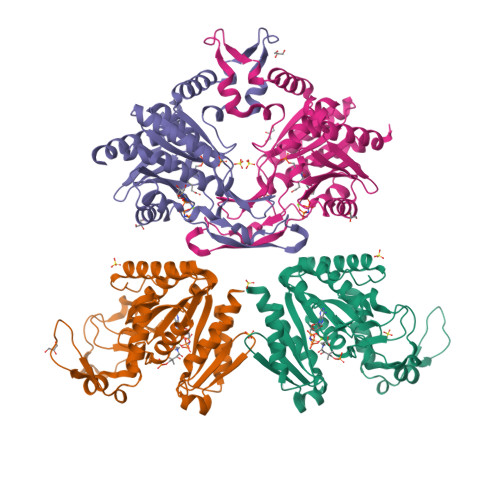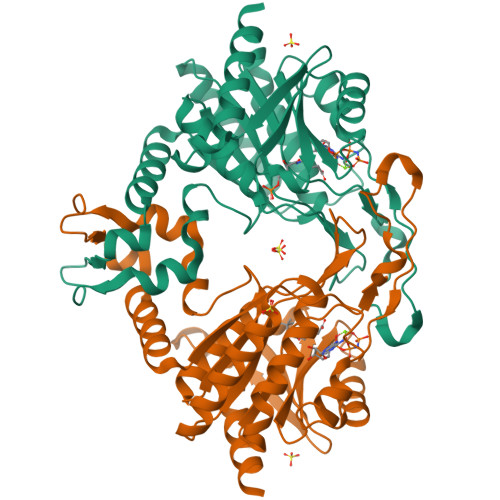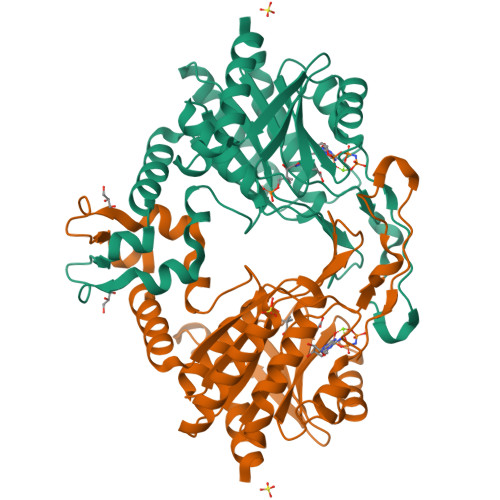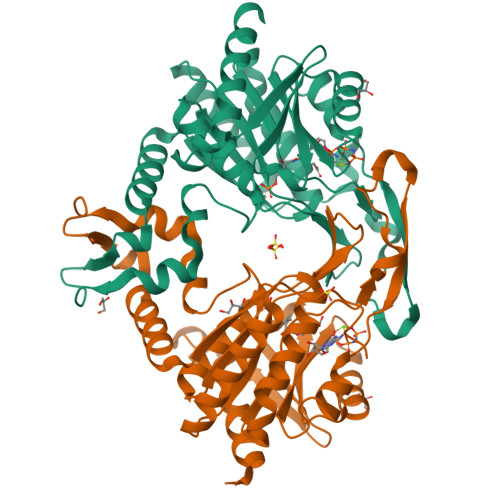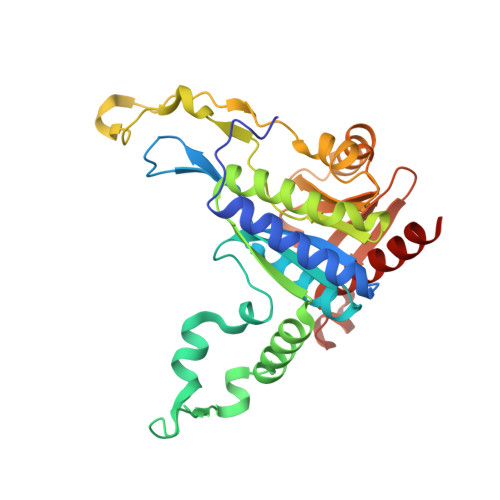The Coenzyme A Level Modulator Hopantenate (HoPan) Inhibits Phosphopantotenoylcysteine Synthetase Activity.
Mostert, K.J., Sharma, N., van der Zwaag, M., Staats, R., Koekemoer, L., Anand, R., Sibon, O.C.M., Strauss, E.(2021) ACS Chem Biol 16: 2401-2414
- PubMed: 34582681
- DOI: https://doi.org/10.1021/acschembio.1c00535
- Primary Citation of Related Structures:
7EDZ - PubMed Abstract:
The pantothenate analogue hopantenate (HoPan) is widely used as a modulator of coenzyme A (CoA) levels in cell biology and disease models─especially for pantothenate kinase associated neurodegeneration (PKAN), a genetic disease rooted in impaired CoA metabolism. This use of HoPan was based on reports that it inhibits pantothenate kinase (PanK), the first enzyme of CoA biosynthesis. Using a combination of in vitro enzyme kinetic studies, crystal structure analysis, and experiments in a typical PKAN cell biology model, we demonstrate that instead of inhibiting PanK, HoPan relies on it for metabolic activation. Once phosphorylated, HoPan inhibits the next enzyme in the CoA pathway─phosphopantothenoylcysteine synthetase (PPCS)─through formation of a nonproductive substrate complex. Moreover, the obtained structure of the human PPCS in complex with the inhibitor and activating nucleotide analogue provides new insights into the catalytic mechanism of PPCS enzymes─including the elusive binding mode for cysteine─and reveals the functional implications of mutations in the human PPCS that have been linked to severe dilated cardiomyopathy. Taken together, this study demonstrates that the molecular mechanism of action of HoPan is more complex than previously thought, suggesting that the results of studies in which it is used as a tool compound must be interpreted with care. Moreover, our findings provide a clear framework for evaluating the various factors that contribute to the potency of CoA-directed inhibitors, one that will prove useful in the future rational development of potential therapies of both human genetic and infectious diseases.
Organizational Affiliation:
Department of Biochemistry, Stellenbosch University, Stellenbosch, 7600, South Africa.








